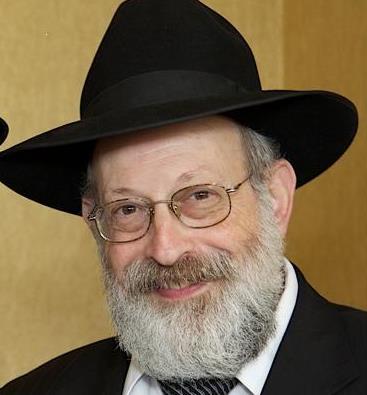The first marriage in history, which we reference in the Birchos Nesuin recited under the chuppah, differed in a fundamental way from all marriages to follow.
According to one Midrashic opinion, Adam and Chavah were created as a human fusion, a man/woman. And the “forming” of the first woman described by the Torah described its separation into two entities.
Tzela, often translated “rib,” is in fact used with regard to the Mishkan to mean “side,” so it could refer to the woman part of Adam/Chavah before Divine surgery provided each entity independent personhood.
And so, Adam’s union with his wife was actually a “reunion” – of two beings who had originally been one. As reflected in Adam’s words when presented with Chavah: “This time it is a bone of my bones, flesh of my flesh” (Bereishis, 2:23).
But every subsequent marriage involves two discrete individuals becoming united, but not reunited. Marriage, after the first one, is less like reattaching a severed part than like transplanting a newly donated one.
The medical metaphor is meaningful.
Transplantation, we know, carries a risk of rejection. The body’s natural reaction to the introduction of an “other,” with its own distinct genetic identity, is to seek to show it the door. That “immune response,” of course, is essential for fighting the introduction of foreign elements that could be harmful.
Likewise, a human soul’s natural response to the intimate introduction of an “other,” with its own discrete spiritual and emotional identity, is to seek to protect itself from the new “threat.”
Doctors address the transplantation danger with immunosuppressant drugs, chemicals that prevent rejection – or, put another way, that weaken the host body’s sense of self.
That, in the context of contemporary marriage, holds an invaluable lesson. The spiritual-emotional transplant that each member of the couple undergoes needs an “immunosuppressant” of its own for the marriage to succeed. It requires, in other words, no less than in the case of an organ transplant, a weakening of self.
Here, no drug will do; what alone can work is sheer force of will and love.
Newlyweds can disagree over whether the window in autumn should be open or closed. But the chilled spouse should be the one insisting that it remain open for the comfort of the overheated one; and the latter should be running to shut it to keep the other warm.
And windows, of course, are only a mundane example.
What’s more, the medical metaphor message isn’t only for newlyweds. Because transplant recipients need to take their medication for life.
© 2023 Rabbi Avi Shafran









